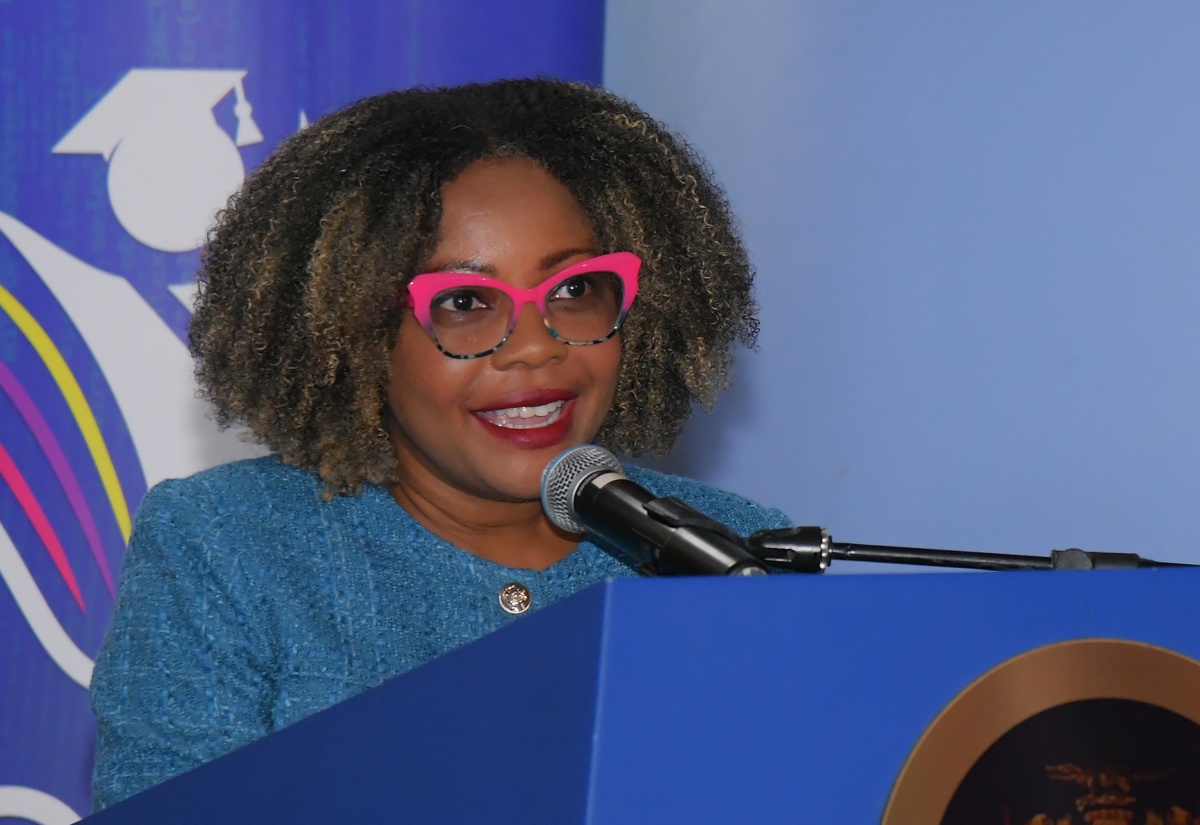All 56 schools on the National School Learning and Intervention Plan (NSLIP) recorded improved performance in Caribbean Secondary Education Certificate (CSEC) English, while 47 improved in Mathematics.
This was noted by Minister of Education, Skills, Youth and Information, Senator Dr. the Hon. Dana Morris Dixon, during a press conference held on August 15 at the Ministry’s Heroes Circle offices in Kingston, where she presented a report on Jamaica’s performance in the CSEC and Caribbean Advanced Proficiency Examination (CAPE) tests.
“It says, Jamaica, that we can reach our children and we can get them to greatness,” she said.
The NSLIP initiative includes additional teaching time during holidays, extra lessons, homework programmes, psychosocial and parental engagement, strict attendance monitoring, provision of digital learning resources, a robust accountability framework, and a focus on customised learning, based on assessment data.
Some of the year-on-year pass rates for English are as follows:
Charlie Smith High School – 13.1 per cent to 75 per cent; Bustamante High School – 12.1 per cent to 51.9 per cent; Fair Prospect High School – 9.5 per cent to 73.7 per cent;
Greater Portmore High School – 21.3 per cent to 78 per cent; Merlene Ottey High School – 19.2 per cent to 85 per cent; and Glengoffe High School – 16.7 per cent to 82.8 per cent
Dr. Morris Dixon highlighted a few of the 47 schools that saw improvements in Mathematics: Edwin Allen High School – 25.4 per cent to 74.1 per cent; St. James High School – 26.5 per cent to 40.5 per cent; Cross Keys High School – seven per cent to 40 per cent; Iona High – 29.2 per cent to 41.9 per cent; Marcus Garvey Technical High School – 11.5 per cent to 31.5 per cent; and Kemps Hill High School – 22.8 per cent to 29.4 per cent.
“We still have more work to do but you can see that our schools are making the effort. Our teachers are working hard. Our principals are working hard. They’re working with us. We can’t, at the Ministry, just say, oh we’re going to do these interventions and they just happen. The school has to be receptive. The school has to do a lot of work to create the environment for the interventions to work, and they did,” Dr. Morris Dixon said.


